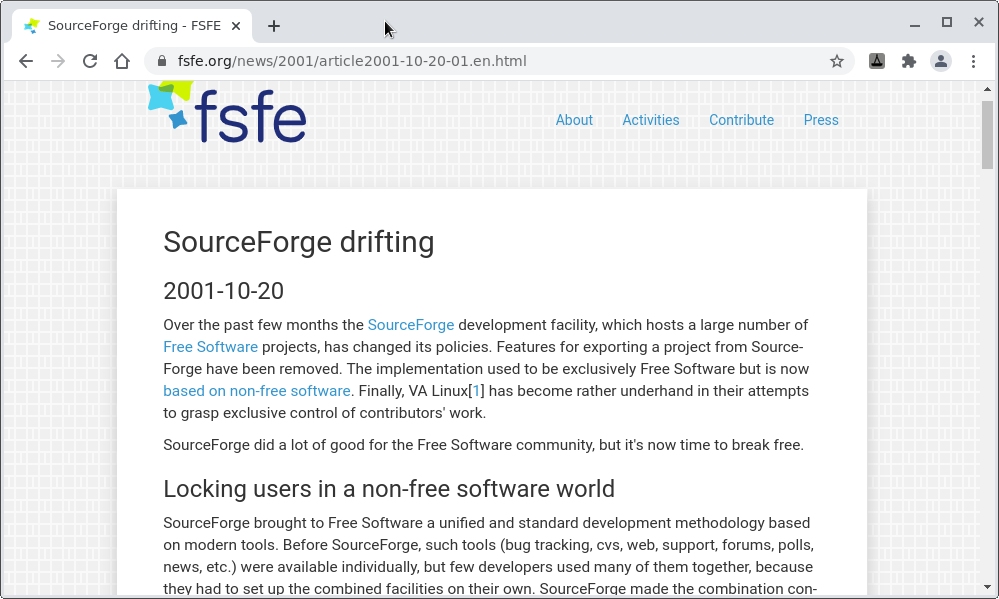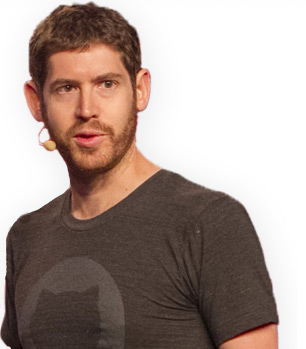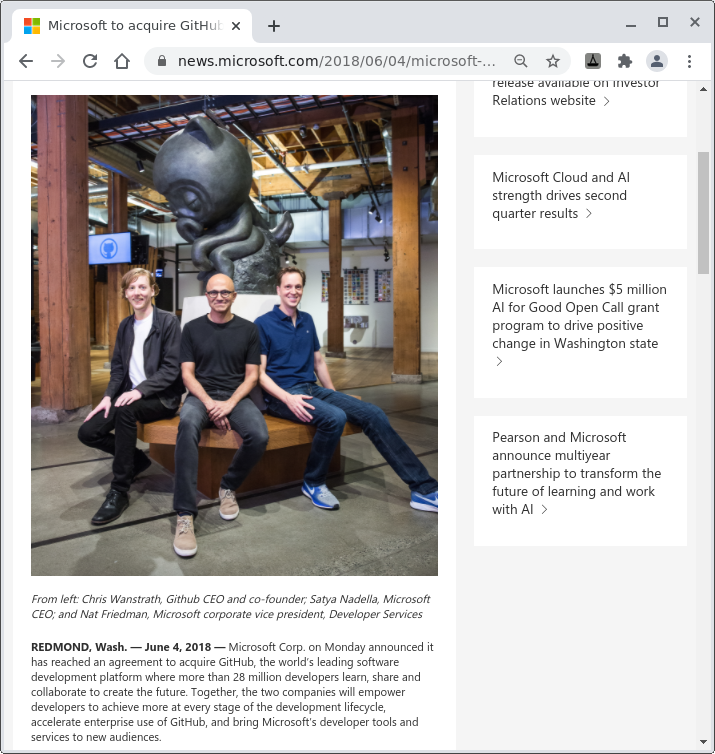The Growing Body of Proprietary Infrastructure for FOSS Development: Repeating Bad History
Karen M. Sandler, Executive Director, Software Freedom Conservancy (SFC)
Denver Gingerich, Director of Compliance, SFC
Bradley M. Kuhn, Policy Fellow & Hacker-in-Residence, SFC
Bradley sends his regrets; he tested positive for COVID-19 this morning and is quarantined.
FOSDEM 2025, Sunday 2 February 2025
😷

Act only according to that maxim whereby you can at the same time will that it should become a universal law.
— Immanuel Kant
Bradley asked us to share the quote above and read this statement.
FOSS Now Has a Long History

History doesn't repeat itself … but it often rhymes.— Samuel Clemens (nom de plume: Mark Twain)
The VA Linux / Sourceforge Debacle

Search “Dachary FSF Europe Sourceforge drifting” to find https://fsfe.org/news/2001/article2001-10-20-01.en.html & read in real time.
Post-Sourceforge Diaspora
- Berlios
- Gna!
- Savannah
There have even been academic whitepapers written about this situation as late as 2011.
An Old bkuhn Slide

• Tom Preston-Werner
•the “open source almost everything” guy
•claimed at OSCON 2013:
•“The GPL is a license of restrictions; I don’t like restrictions. just use MIT”
Microsoft Acquires GitHub

• Microsoft Acquired GitHub in 2018-10
• … but Microsoft was always very excited about
non-copylefted FOSS
• They've been trying for 30 years to reduce the amount of
copylefted code in FOSS.
• GitHub was the obvious partner to help them do it.
Meanwhile, in Copyleft Land …
In the late 1990s, it became obvious that the Free Software Foundation USA (FSF USA) was not able to do every possible task for the toolchain projects, which included:
- Copyright Assignment
- Appointing Maintainers of key GNU packages
- Running all infrastructural servers for every GNU project
- Licensing work (e.g., drafting new versions of the GPL)
A compromise was reached, creating the Sourceware project (which years later became an SFC member project).
SourceWare is different
Because the project was founded by developers who valued copyleft, Sourceware remains always unwilling to allow for-profit interests influence the hosting.
This resistance by individuals from allowing for-profit control continued — even though Sourceware's physical servers physically reside in donated rack space from Cygnus (then Red Hat and now IBM).
Sourceware is admittedly not the infrastructure of choice for folks who don't do low-level C/C++ programming, but it does serve the needs of that community well.
There is some other hope as well!
Please take a look at the Forejgo project, and the German-based non-profit, Codeberg.
There are many other similar systems, we think Forejgo is strategic because they have attempted to make the system feature and interface compatible with GitHub, which as we saw in our survey at the start of the talk is by-far the most popular proprietary hosting solutions used by FOSS developers.
Follow-Up / Talk License
Please donate to become a Conservancy Sustainer: https://sfconservancy.org/sustainer/

Presentation and slides are: Copyright © 2024, 2025 Bradley M. Kuhn, and are licensed under the Creative Commons Attribution-Share Alike 4.0 International License.
Some images included herein are ©’ed by others. I believe my use of those images is fair use under USA © law (which I also believe is the country of 1st publication under Berne). However, I suggest you remove such images if you redistribute these slides.